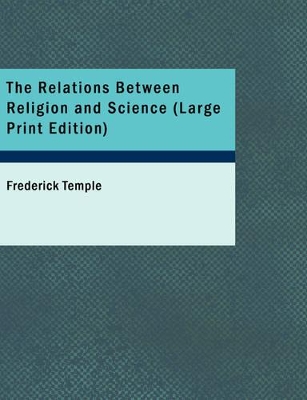Cambridge Library Collection - Science and Religion
2 total works
In 1884 the long-running annual series of Bampton Lectures at the University of Oxford was given by Frederick Temple, at that time Bishop of Exeter. He had earlier been a prominent educational reformer, headmaster at Rugby School and chaplain to Queen Victoria, and he later rose to become Archbishop of Canterbury. This book contains his Bampton Lectures on The Relations between Religion and Science - perhaps the most passionately debated topic of that time. He discusses the apparent conflict between scientific and religious beliefs on various topics including free will, knowledge, evolution, and supernatural power, but concludes that science and religion are not foes, but counterparts, and that neither is complete without the other. His contribution in this area is of lasting importance in the history and philosophy of science.
Essays and Reviews
by Frederick Temple, Rowland Williams, Baden Powell, Henry Bristow Wilson, Charles Wycliffe Goodwin, Mark Pattison, and Benjamin Jowett
Published December 1970
Comprising seven essays by learned contributors and controversially advocating a rationalist Christianity, this work became a sensation upon publication in 1860. Frederick Temple (1821-1902), later Archbishop of Canterbury, wrote on the cultural contributions of non-Christians; Roland Williams (1817-70), Professor of Hebrew at Lampeter, questioned Old Testament prophesies; Baden Powell (1796-1850), Oxford Professor of Geometry, challenged belief in miracles and embraced Darwinism; Henry Bristow Wilson (1803-88) questioned literal biblical history; the only lay contributor, Egyptologist Charles Wycliffe Goodwin (1817-78), embraced geology; Mark Pattison (1813-84), tutor at Lincoln College, wrote on the history of rationalist theology; and Benjamin Jowett (1817-93), Oxford Professor of Greek, advocated a historical reading of the Bible. Wilson and Williams were later found guilty of heresy by a Church court, though this was overturned on appeal. For readers interested in the theological controversies of the Victorian era, these essays remain invaluable.

